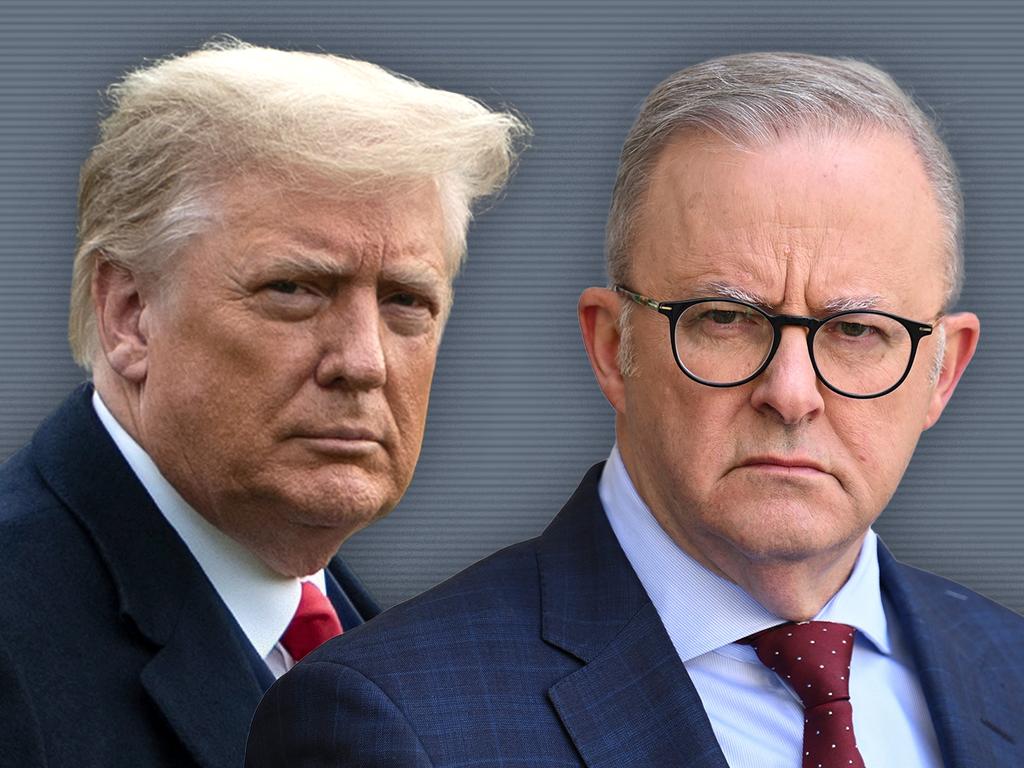Nation needs new markets to beat destructive tariffs
The prospect of Australia’s beef producers receiving the same treatment from our closest ally and security partner is profoundly shocking.
Following Donald Trump’s imposition of 25 per cent tariffs on steel and aluminium imports, the possibility of further tariffs being extended to other imports as early as April 2 suggests the 2005 Australia-US free trade agreement is no longer worth the paper it was printed on.
Trade Minister Don Farrell is “deeply concerned” about Australia’s beef industry exports to the US, which dwarf our steel and aluminium exports, as he told The Australian’s Global Food Forum in Melbourne on Friday. According to the UN Comtrade database, meat accounted for more than $4bn of Australia’s $14bn exports to the US last year, followed by precious metals and pharmaceutical goods. Aluminium exports to the US were worth $268m and steel $265m.
The prospect of further tariffs has prompted some people, such as Bill Shorten, to call for tit-for-tat retaliation. And in a foolish, grossly irresponsible reaction, independent senator Jacqui Lambie called for Australia to perform a destructive own-goal by booting the US out of the joint signals intelligence base at Pine Gap in the Northern Territory.
Cooler heads are prevailing, however. Tempting as retaliation might be, tariffs on US imports would cost Australian consumers, just as US tariffs will harm American consumers, adding to inflation. For several decades, freer trade has benefited developed and developing economies, including the free trade agreements forged by both sides of politics in Australia.
Addressing the Global Food Forum, Senator Farrell sensibly focused on the need to broaden Australia’s export market base, a point we advocated during the China trade crisis. “Think of the United Arab Emirates as the Woolies warehouse of the Middle East,” he said. “Enter products into the United Arab Emirates and all of our products are going to be going in there tariff free.”
Given the quality of Australian agricultural products, the nation is in a strong position to act. Food exports are booming, Visy chairman Anthony Pratt said in his keynote speech, with 70 per cent of our farm production sold from 169 markets.
Last financial year, Mr Pratt said, Australia sold $75.6bn worth of agriculture, fishery and forestry products in overseas markets, while the value of exports of livestock and livestock products reached a record $29bn.
In addition to instability in financial markets, Mr Trump’s ideological obsession with tariffs – the “most beautiful word in the dictionary”, he says, foreshadowing 200 per cent tariffs on European wine and champagne – is ushering in regressive, inward-looking trade policies.
These include the tit-for-tat trade war between China and Canada. Those approaches, experience shows, will be bad for economies, including in the US. Australia is a trading nation and its interests lie in seeking diverse markets and joining with like-minded nations to demonstrate the benefits of free trade.




China’s import restrictions on Australian produce, including beef, lobster, barley and wine, from 2020 to 2023-24 were denounced for what they were – hostile coercion – in response to Scott Morrison’s legitimate questions about the origins of the Covid-19 pandemic.